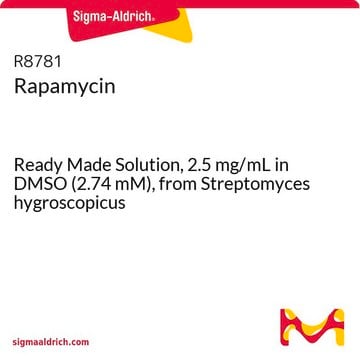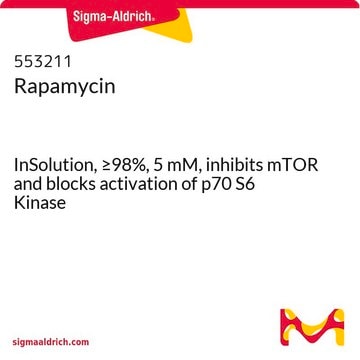SRP0364
mTOR/Raptor/MLST8 human
recombinant, expressed in baculovirus infected Sf9 cells, ≥50% (SDS-PAGE)
About This Item
Productos recomendados
biological source
human
recombinant
expressed in baculovirus infected Sf9 cells
assay
≥50% (SDS-PAGE)
form
aqueous solution
mol wt
137 kDa (mTOR)
150 kDa (Raptor)
37 kDa (MLST8)
packaging
pkg of 10 μg
manufacturer/tradename
Sigma-Aldrich
technique(s)
cell based assay: suitable
solubility
water: soluble
NCBI accession no.
application(s)
life science and biopharma
shipped in
dry ice
storage temp.
−70°C
Gene Information
human ... MLST8(64223) , MTOR(2475) , RPTOR(57521)
General description
Application
Biochem/physiol Actions
Storage Class
10 - Combustible liquids
wgk_germany
WGK 3
flash_point_f
Not applicable
flash_point_c
Not applicable
Certificados de análisis (COA)
Busque Certificados de análisis (COA) introduciendo el número de lote del producto. Los números de lote se encuentran en la etiqueta del producto después de las palabras «Lot» o «Batch»
¿Ya tiene este producto?
Encuentre la documentación para los productos que ha comprado recientemente en la Biblioteca de documentos.
Nuestro equipo de científicos tiene experiencia en todas las áreas de investigación: Ciencias de la vida, Ciencia de los materiales, Síntesis química, Cromatografía, Analítica y muchas otras.
Póngase en contacto con el Servicio técnico








